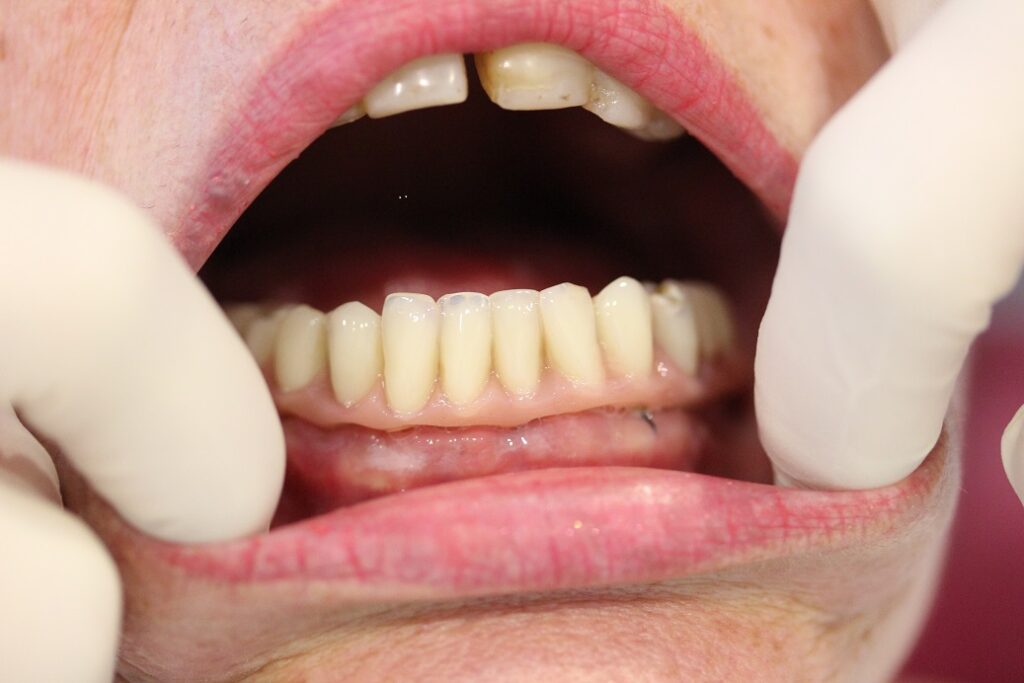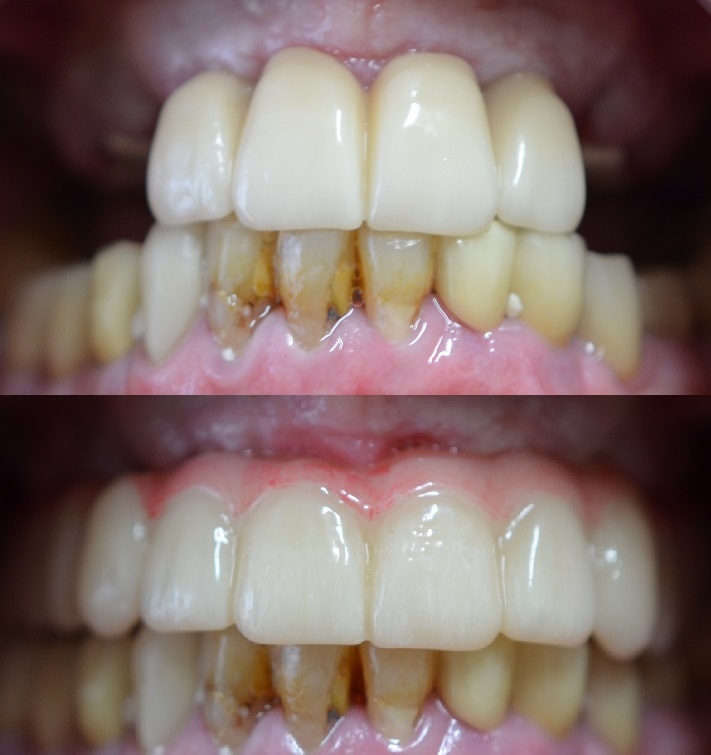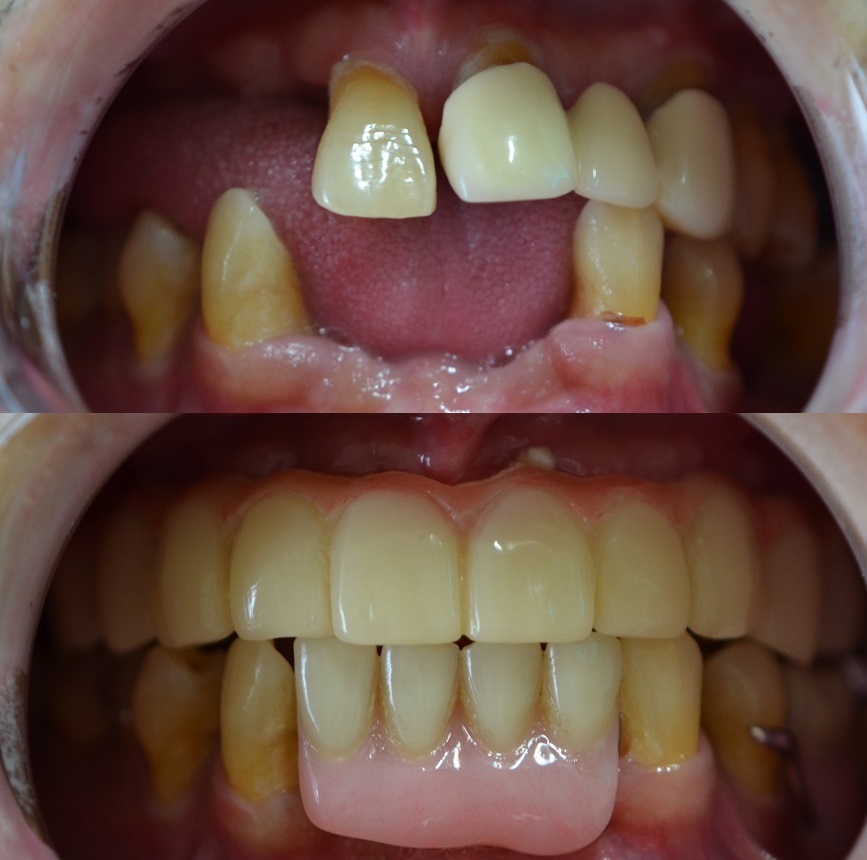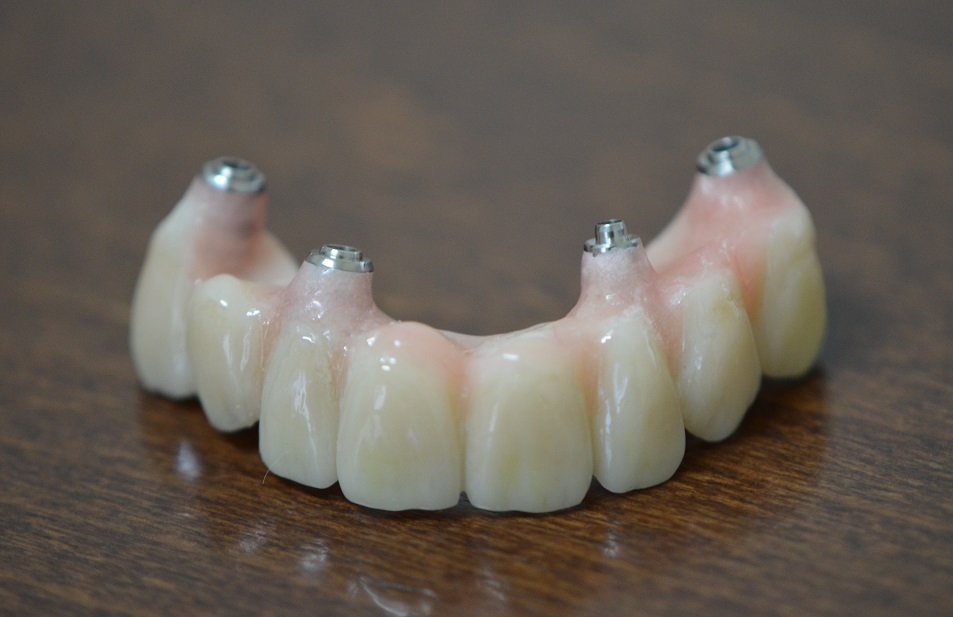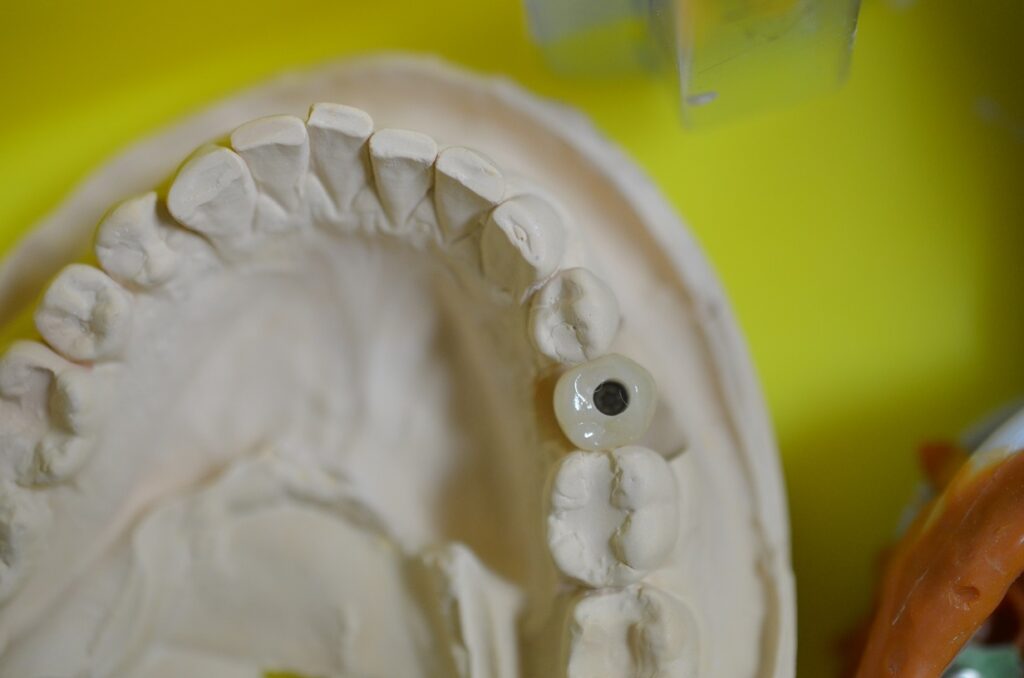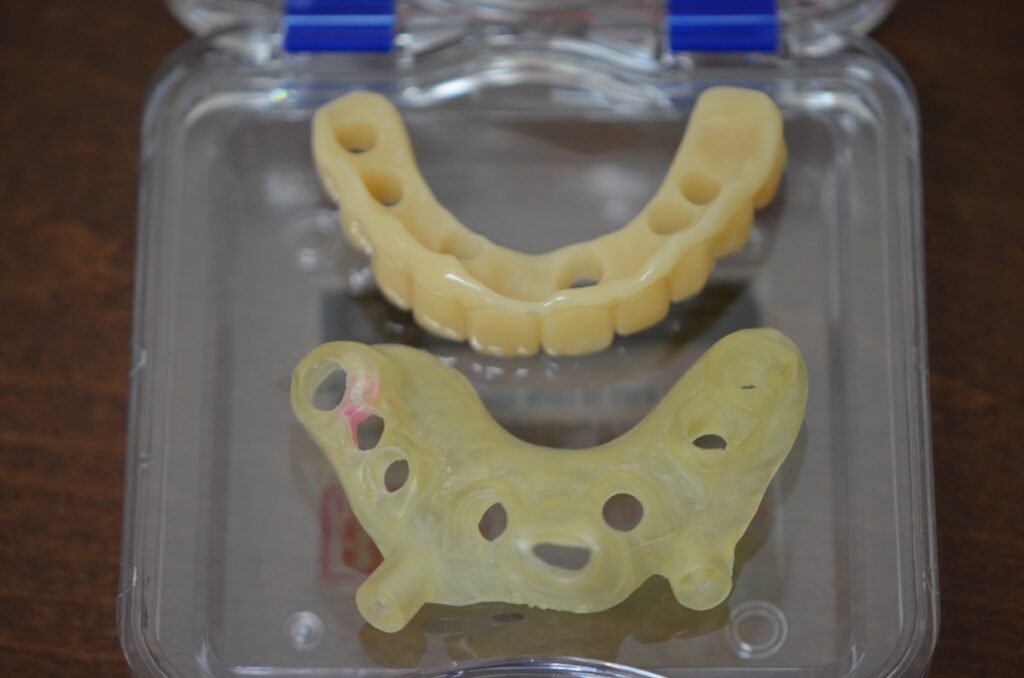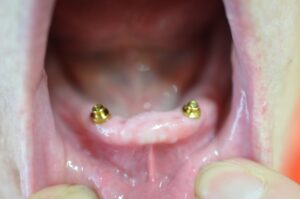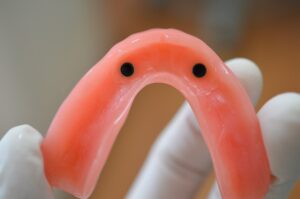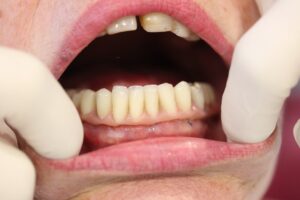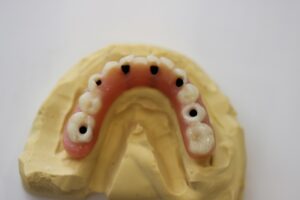Implant-Retained Dentures

A dental implant provides several advantages over other tooth replacement options.
In addition to replacing single or multiple teeth, dental implants can be also used to retain a partial or a full denture.
Advantages of implant-retained dentures include:
- much stronger hold than ordinary dentures
- improved chewing capabilities significantly
- no hooks on nearby teeth
- can support a partial or a full denture
- less expensive than implant bridges
Disadvantages of implant-retained dentures include:
- careful cleaning and home maintenance is required
- dentures can still chip or break (like normal dentures)
- still best not to wear at night during sleep (take dentures out of the mouth while sleeping)
- components in dentures needs to be checked and replaced every few years
- still needs to be checked and cleaned by qualified professionals on a regular basis (e.g. yearly)
The process of having implant-retained dentures generally consists of several steps over a 3-6 month period as described below:
1. Consultation + x-ray assessment of the potential implant sites - all associated procedures and risks will be discussed including a printed quote covering all costs involved.
2. Implant surgery (may include additional procedures including bone grafting or sinus lift) - usually done in a pain-free manner under local anaesthetic in the dental chair. Procedure time will be determined by the number of implants needed.
3. Healing period of 3-6 months - time needed for implant to integrate into the jaw bone before it can be used for function. Dentures will be worn carefully during this time. We will schedule review appointments during this time to check the healing process.
4. New denture fabrication or modifying existing denture - this will be done by our local certified dental laboratory to ensure the correct fit is achieved
5. Maintenance and follow-ups - implants along with the dentures should be reviewed at least on a yearly basis along with the rest of the mouth at routine dental checkups.
IMPLANT-RETAINED DENTURES - FREQUENTLY ASKED QUESTIONS
IMPLANT-RETAINED DENTURES - BEFORE & AFTERS
ADELAIDE’S DENTAL IMPLANT SURGEON
Dr. Han Deng – B.D.S & B.Sc.Dent(Hons), MClinDent (Implant Dentistry)
Originally born in Beijing (China), Han grew up in the south-western parts of Sydney and subsequently moved to Adelaide in order to pursue a career in dentistry. Han graduated from the University of Adelaide in 2011 with a concurrent Honours degree focusing on oral cancer and oral surgery.
He has been in private practice since graduation, working all around Adelaide before becoming a practice owner himself in 2012. With the help of his chinese background, he is fluent in both English and Mandarin (Chinese). He has always had a special interest in the field of implant dentistry and went on to complete a 2-year masters of clinical dentistry in implant dentistry at Griffith University in the Gold Coast while being the only interstate graduate of his year.
He is currently the owner and principal dentist of three dental surgeries throughout the Adelaide metro area and provides comprehensive implant treatment including both implant surgery and restoration in-house. He focuses on efficient, cost-effective and realistic treatment planning as well as long-term maintenance. He believes in honestly and responsibility when it comes to dental treatment and takes great pride in taking genuine care of his patients. He has a very close relationship with a state-of-the-art Adelaide dental laboratory to ensure all implant work is genuine and local with warranties on all components/parts.

